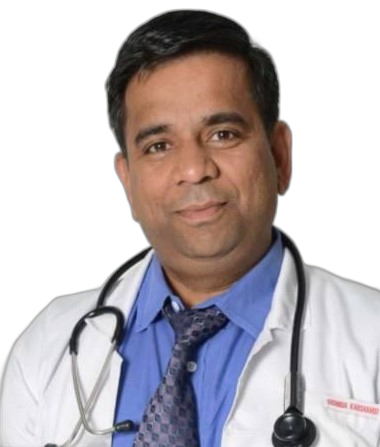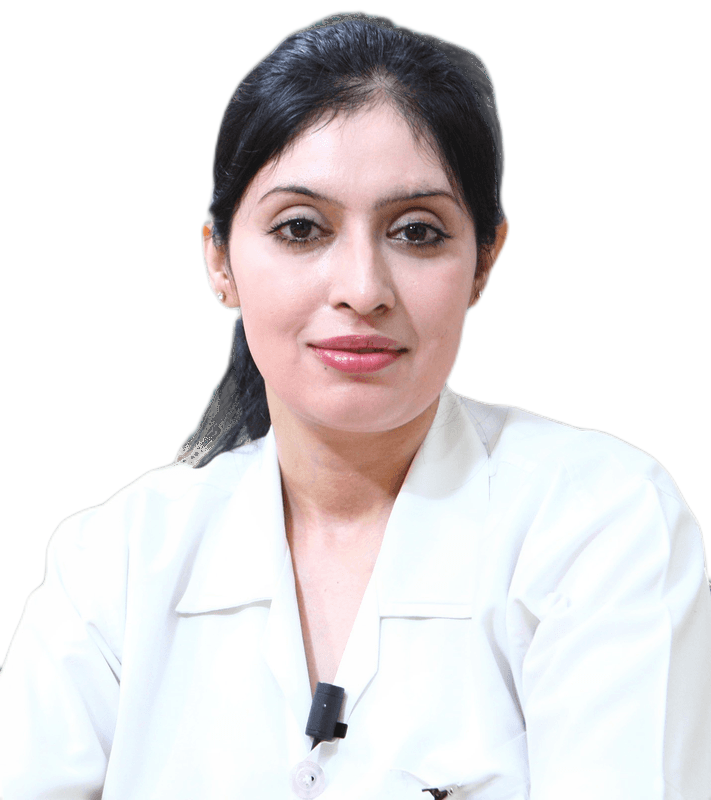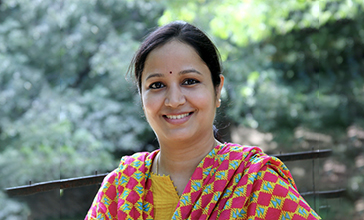WHAT WE TREAT
DISCOVER
SHOP ALL
Weight Loss

Ideal Weight, Overweight and Obesity
Ideal weight is the range of weight considered healthy for a person depending on their body composition, height and overall health. Putting on extra body weight is called overweight and the advanced stage of body fat accumulation is known as obesity.
Common Causes of Weight Gain
Taking in immoderate amounts of calories, inactive lifestyle, failing to keep regular exercise consistent, consuming food as a stress buster, scarce sleep, PCOS, hypothyroidism, hormonal imbalances, and some medications like antipsychotics and antidepressants.
What is the Process of Weight Loss?
By forming a calorie deficit and maintaining a healthy diet, the body starts to break down fat via fatty acids. During the process, the body preserves body mass. Healthy weight loss starts taking place. Intake more energy to spend more by taking a balanced diet, keeping the metabolic process going.
How Common is it?
42%
approximately adults in India are suffering from obesity
36.5%
of men and women aged 15-49 years are overweight
49%
approx. people consume junk food leading to weight gain
5/10
Indians realise their situation and seek weight loss treatment
Want to find out more? We worked with our doctors to create this Ultimate Guide to ED
Your personalized Treatment

Our Medical Board
Case Studies
FAQ

Does weight loss treatment plans actually work?
Yes. Going for weight loss treatment plans might actually work for you. However, it totally depends on how much seriously you are implementing each and every step needed to lose extra fat. Any weight loss plan requires adherence to the plan, extreme commitment, and suitability of the chosen plan for you.
What are the top 10 foods that help in weight loss?
The selection of foods suggested by professionals for effective weight loss have similar attributes i.e. richness in protein and fibre. Including such foods in your dit can prove to be beneficial. Top 10 foods that can aid in weight loss programme are chia seeds, whole grains, fatty fish, apples, cruciferous vegetables, pistachios, fermented foods, dark chocolate, eggs, and avocados.
I have PCOS. How beneficial will the weight loss treatment plan be for me?
If you are suffering from PCOS or Polycystic Ovary Syndrome, an effective weight loss plan can be highly beneficial for you. Being an hormonal disorder affecting ovaries, PCOS can lead to noticeable weight gain. Going for a weight loss journey can help you manage symptoms of PCOS and improve your overall health. It can regularize menstruation, regulate hormones, reduce androgen fertility and offer metabolic benefits.
How long does it typically take to see noticeable results from a weight loss treatment?
The effective results from a weight loss treatment program varies from individual to individual. Following the plan to the T, metabolic process, and implementation of lifestyle modifications play a vital role in figuring out the timeline for visible results.
Weight Loss: Causes, Symptoms and Treatment
What is Weight Loss?
Weight loss includes balancing calories and daily food intake. Weight loss is possible when you burn more calories than your daily consumption of calories. Weight loss refers to a reduction in weight be it a reduction in fat or loss of muscle. This can be done by managing a diet and maintaining a healthy routine. It’s best to reduce calories from food and cut off all sugary packed drinking beverages, increase exercise. Weight loss becomes important when the person is suffering from various weight-related complexities such as heart stroke, diabetes, thyroid etc.How common are Overweight and Obesity?
As many as 13% of the total population of adults in the world are obese. Moreover, almost 39% of the population of adults fall under the overweight category. The ratio of overweight people is so high that almost one out of every five children or adolescents is suffering from overweight and obesity. Obesity is constantly increasing with the increasing food intake and use of ingredients that increase LDL “the bad fat” increasing the risk of heart disease. It’s not strange that almost 49% of people consume junk food which leads to significant weight gain and bad health.Symptoms of Obesity
In case you feel that you have been not keeping track of your diet and are constantly gaining weight which is leading to complications, then these might be the signs of obesity. It is better to spot the signs and symptoms before it becomes difficult for you to lose some ounces. Here are some common signs and symptoms of obesity:- Breathing Problems: The person may experience COPD i.e. chronic obstructive pulmonary disorder. It is a severe disease in which the airways are blocked. The person can also experience breathing problems in sleep and slight obstruction in the daytime.
- Tumours: Obesity can lead to lethal diseases, one such is tumours. The males can experience prostate and bowel cancers, and females can experience breast cancer and cancers mostly in the pelvic region.
- Angina: Angina is severe chest pain due to obstruction in the coronary artery. The obstruction occurs due to the deposition of cholesterol on the lining of arteries leading to obstruction.
- Diabetes: Diabetes is one of the common symptoms of obesity. The extra deposition of fat leads to obstruction in the pathway of glucose utilisation.
- Gallbladder and Liver Diseases: The extra fat deposited in your body also deposits in the liver and gallbladder causing diseases like fatty liver.
- Gastroesophageal Reflux Disorder (GERD): It refers to the stomach acids that are present in access due to obesity. They travel back to the food pipe and cause heartburn.
- High Blood Pressure: The blood from the blood vessels travels fast in obesity as there is deposited fat in the lining leaving very little passage for the blood to flow. This leads the blood to flow fast.
Causes of Obesity
It is pretty evident that bad eating habits and lifestyle are the major culprits that cause obesity. You can be at high risk of obesity if you are consuming more calories than what you are actually using. There are many other reasons for obesity, most of which individually depend on the person. Here are some common causes of obesity: Factors that increase the calorie intake include: Fast Food/ Junk Food: In this modern era where life is fast and everything is a reality available, it becomes difficult for us to stick to home-cooked clean food. Most of us tend to binge on oily and deep-fried items. They are not only high in calories but also high in sugars. Almost all of them are devoid of nutrients and fibre which makes it also scrap. Therefore, they turn out to be the major causative reasons for obesity. High Sugar Intake: Including processed and fast food, packed drinking beverages especially sodas and carbonated drinks contain a high content of sugar. Above everything, there are a number of tempting sweets that play a major role in increasing sugar intake. Laziness: The major reason behind obesity can be a lack of motion and sitting for long hours. Laziness also promotes anxiety and loneliness which most of the time ends up in stress eating. Apart from that the person is also not making any effort to burn calories therefore, it eventually leads to obesity. Hormones: Hormones are chemical messengers inside our body responsible for transferring messages from only one body part to another. A lot of factors such as lack of sleep, stress can trigger hormonal imbalance. They will eventually lead to PCOD and PCOS, which are responsible for excessive weight gain. Medications: Medicines are majorly responsible for weight gain. Most of the medicines have side effects of weight gain such as antidepressants, anabolic steroids, antidiabetics, and anti-seizure medicines. Factors leading to low consumption of calories: Sitting on Screen: Most of the people in the modern day are working professionals having most of their work on laptops and screens. This majorly promotes laziness and since the movement is restricted, the amount of calories burned per day is much less. Automation: Most of the work in our surroundings is automated, requiring least manual work. People barely get up to even make a cup of coffee. All of these habits have been promoting obesity for a long time. Fatigue: The modern world comprises most of the population struggling with fatigue. Studies suggest that the more you sit inside the less motivated you are. Sitting for the longest of hours promotes body aches and stiffness, it eventually leads to weight gain and obesity. Lack of Willingness: Work lifestyles and bad eating habits have been promoting a sit-at-home culture and people are less interested in doing their own chores. People are least willing to hit the gym or even go for a run leading to obese bodies. Disability: Adults and children suffering from disabilities that render them immobile for a very long duration are also responsible for their excess weight gain.Diagnosing Obesity
There are some parameters that can help you diagnose obesity. The first way is a physical examination where your doctor will check your body mass index ratio (BMI). BMI is the measure to analyse body weight based on overall weight and height. It may not be the most accurate measure as the weight of the person can vary depending upon the body time. The BMI of the person can be high and can still be healthy. Other ways to diagnose body fat include:- Skinfold thickness check
- Comparison of weight and hip proportions
- Dual-energy Radiographic Absorptiometry scans
- Measuring fat around the waist
- Ultrasound
- CT scan
- MRI scan
- Liver function tests
- Diabetes test
- Thyroid test
- Electrocardiogram for heart
Weight Loss Treatment
Before you start with your weight loss treatment it is important for you to get a complete profiling of yourself. With the help of the profiling, your doctor will get an idea about where to start first. The most prior concerns causing major health complications will be given first treatment. An entire weight loss plan will be made based on your body type. The overall weight loss treatment process will be slow and modifications will be made based on changes observed in the body. The weight loss treatment plan will include: Changes in Diet: The very first thing that your doctor will focus on is your diet and the food items you have been consuming. You may start by consuming food items in very small proportions so that overeating can be avoided. The doctor will focus more on making you eat clean. Clean food mainly includes food items such as green vegetables, boiled food and fruits. One must include whole grains, legumes and food items low in fat in their diet. Doctors will suggest a diet high in fibre, and protein and low in carbohydrates to control your weight. Increasing Daily Calorie Burn: Since most people are in house arrest mode and do not work much, it is best to start with increasing body activity first. Diet plays an important role in weight loss but another thing that determines how fast you will lose weight involves exercise. Your doctor will ask you to practice yoga and weightlifting to speed up the weight-loss process and will suggest some home remedies for fat loss. In case a person is not able to make enough time for gym or yoga, it is best to go for a 30-minute walk every day. Therapies Based on Behaviour: The best and foremost therapy for obesity due to behavioural factors is counselling. Your doctor may suggest a counsellor who will guide you throughout and will take your doubts. They can help you manage obesity due to stress and anxiety. Mental health can greatly influence your overall appearance and one major effect is obesity. In order to manage weight, one must not hesitate to take mental support to fight anxiety and stress. Medications: There are a number of weight loss medications that your doctor may recommend to speed up the weight loss process. Weight loss medication is not the sole solution for reducing weight as diet and exercise are the only ways to reduce weight. Some of the best weight loss medication that help in reducing weight:- Reducing fat absorption
- Decreasing appetite
- Reducing hunger for weight reduction treatment
- Slowing down digestion so that you eat less
- Making you feel full
- Managing binge eating
- Weight management medications- Glucagon-like-1 receptor antagonist
- Gastric band
- Gastric bypass
- Gastric sleeve
- Duodenal switch
Prevention of Weight Gain
Preventive procedures for obesity are easier than finding a cure after you're suffering from it. The mechanism in your body is programmed such that it adjusts to your current weight and height. In case you gain weight, your body will modify itself in a way that now you feel more hungry considering the increased body mass. In a number of cases, the weight gain is due to childhood patterns and hereditary reasons. Your family genes will mostly decide your body type and structure but your diet can be modified to make you gain your desired shape. You can start taking precautions in the early stages by following methods: Dietary Adjustments: It's better to start with diet first because almost 70% of your weight journey depends on your diet and the rest is on exercise. Make a rule to ditch high surgery and calorie drinks and rather get up to prepare your own healthy meal. Add more proportions of fruits and eat raw vegetables. Get Up and Work Out: In order to get a lean body and avoid shifting to the obese side on the BMI scale, get up and go for a run. Once you start the process of working which may seem a little difficult in the beginning, you will slowly get addicted to it. Start with doing a 30-minute walk daily after a meal. Shop Healthy: Wherever you go for grocery shopping, pick up food items that are healthy for your body and ditch high-calorie and sugar foods. Try fixing dates when you can reward yourself with some fast snacks but within limits. References: https://www.nhsinform.scot/illnesses-and-conditions/nutritional/obesity https://www.niddk.nih.gov/health-information/weight-management/adult-overweight-obesity/treatment https://medbroadcast.com/condition/getcondition/obesity https://www.healthline.com/health/obesity#diagnosis https://my.clevelandclinic.org/health/diseases/11209-weight-control-and-obesity https://www.mayoclinic.org/diseases-conditions/obesity/symptoms-causes/syc-20375742 https://ourworldindata.org/obesity#:~:text=13%25%20of%20adults%20in%20the,adolescents%2C%20globally%2C%20are%20overweight.2023 nirvasa.com








